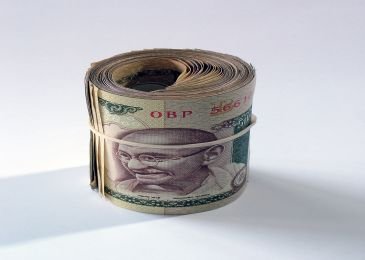Not yet impacted!
September 12, 2013 | Thursday | Features | By BioSpectrum Bureau
The Indian bioscience industry seems to have been shielded from the far reaching impact of the rupee fall.
With the dollar-rupee parity crossing 66 per USD, there has been a lot of concern on its impact on the industry. The trend on this plummeting reality is mixed. The biotech and pharma companies are export oriented and less dependent on imports.
"The depreciating rupee will result in a gain to these companies in the short term. However, in the medium term as a result of inflation coupled with customer expectation of lower prices, the margins will be under pressure," responded Mr KV Balasubramaniam, managing director, Indian Immunologicals Ltd.,
This sector including the pharma industry accounts for a considerable 11 percent of exports from India. Growing at an average rate of 20 percent (YoY exports) in the last two years. The Ministry of Commerce has set up a target of $25 billion for Pharmaceutical exports for the year 2013-14.
The volatility of the Indian Rupee is a real long-term concern for India now. The movement of currency is a trailing indicator for the stability of the government it represents. Global MNCs in pharma, biotech, and life sciences will hedge its position within India, relative to fellow rapidly emerging nations that clearly indicate a longer-term stability profile.
Adds Mr Nicholas Mitchell, managing director, Phenomenex India, "As one of India's most rapidly emerging sectors (pharma) behind IT and BPO, we must unite to lobby for policy changes that promote stability not only for our sector, but for all of those India is relying upon to advance its position on the global stage."
Says Mr Siddharth Dhodi, senior manager lifesciences, Yes Bank, "Indian Pharmaceutical is likely to benefit from the rupee vulnerability. The large-cap pharma companies in India are primarily export oriented companies and would witness an increased top-line growth in rupee term. This would include Sun Pharma, Lupin, Dr Reddy's and Cipla.
"However, companies with substantial foreign liabilities in the form of External Commercial Borrowings (ECBs) will experience a negative hit owing to market-to-market (MTM) losses. In addition to this, the falling rupee imposes a higher burden on interest charges and repayment obligations."
Some pharma companies import Active Pharmaceutical Ingredients (APIs), excipients, and other raw materials from China. As importing raw materials from China becomes expensive, the margins without a proper hedging strategy gets negatively affected.
For example, Sun Pharma with about 75 percent of international sales revenue has experienced a positive effect on the margins. Sun has the policy of keeping its receivables unhedged, which has contributed to the upside. In addition to this, Sun does not have any forex liabilities in its books. On the other hand, companies like Aurobindo Pharma, where the debt is primarily denominated in foreign currency has had to register a forex loss owing to restatement.
Mr Shrikanth, industry manager, business & financial services, Frost & Sullivan, also agrees with the trends. "The pharma industry is more of an export industry and so the depreciation of the Indian rupee is a good sign as it increases the cash flow. On the flip side, some companies have foreign debts which means they will be paying back at higher cash rates.
"The biopharma industry is not going to face much problems because the industry derives lot of revenues from the US market. Right now, the situation is very favorable for biotechnology and pharmaceutical industry because they gain revenues from the exports. In the future, if they are looking to hitch their revenues and their interest rates, they might need to shell a lot more money than earlier," he added.
For foreign investors, under this slowdown, it becomes easier to acquire Indian companies. There are many companies who are looking out for healthcare companies in India. Thus, it becomes favorable for exporters. For foreign investors time is money. If there is a military strike on Syria by US, it is going to increase the crude oil prices, which in turn is going to result in higher import prices. Mr Shrikanth believes that the government should welcome deposits from NRIs at this critical time.
No matter what the Indian government does, investors are going to wait and watch the situation as it unfolds, till the culmination of the elections next May.









